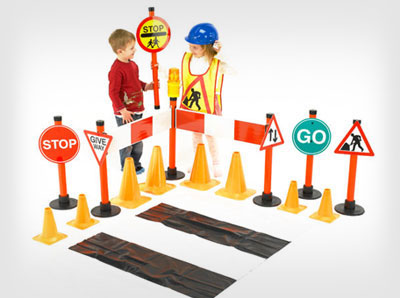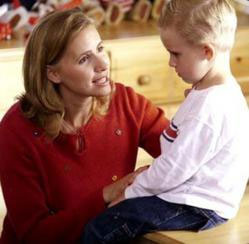Divorce or separation is an unhappy event in the life of parents and children. When a new family is established, it creates a feeling of guilt in single parent. The children have to adjust to the new family or the new surroundings. It is very tough for them.Your eldest is from a prior relationship and youve long since established a new family. He or she is now pushing for changes to the residential arrangement and thus spend more time with the other parent. There is a pang in your gut. The old issues with the "ex" re-emerge. You think about losing your child yet again and the impact on the younger siblings who are not of that former relationship but who will remain with you full-time, missing the elder sibling. When parents separate or divorce, precious little time is ever given to the consequences and challenges to be faced down the road. The custody and access battle of the day came to a conclusion and the parent with primary residence or custody envisions that lasting to the day the child leaves home for work or college. However, the secondary residential parent or access parent, often holds a dream that one day, their child will come to live with them as he or she has been living in their primary residence. Typically these kind of issues surface when the child is in the tween years, that age between 9 and 12. The child may want more time with the alternate parent based upon the developing relationship and sometimes based upon a fantasized view of what the change may provide. The child is supported explicitly or implicitly by the desires of the alternate parent. Whether or not to facilitate a change in the residential schedule depends upon many factors. Parents are asked to consider counseling or mediation to review the plan and discuss issues arising. In the absence of discussion, the matter tends to fester between the parties and even between child and parents. In some cases the festering takes on a life of its own and the conflicts that had long since been settled re-emerge with a vengeance disrupting life for all concerned. Certainly these appear to be complicated family situations. However, the complexity can be navigated assuming goodwill on the part of both parents to review and seriously consider change. Change is inevitable, even in intact families. So it is not change per se that is problematic, but more so resistance to it. With review, planning and acceptance, families endure change. If this were not the case, children would not enter school, grow and eventually leave home anyway. For parents whose child has a foot in two families, there do tend to be changes beyond what is experienced in intact families. For children between separated parents who have since re-established families, there are different changes to face. For instance; as the child grows, one parent over the other may be preferred along gender lines; there can be job relocations; the preferred school may be in the area of the other parent. Facing the changes forthrightly and facilitating change through discussion and dialogue can minimize negative consequences and help maintain good and ongoing relationships for all concerned. The degree to which parents can negotiate and facilitate change, family structure remains somewhat fluid and resilient. Children get to enjoy and develop their relationships according to their developmental needs. All relationships can remain intact. As for the kids remaining with the parent who had primary residence, they may miss their elder sibling. This does not mean however their relationship to the elder sibling has ended, but circumstances do dictate a different structure - a reality that must be faced. These parents must realize a child with a foot in two families has different pushes and pulls and help all their children live within that reality so that as they get older, they too learn that negotiation skills and compromise can make lifes challenges manageable. To see other article by Gary Direnfeld or contact him: click here
Divorce or separation is an unhappy event in the life of parents and children. When a new family is established, it creates a feeling of guilt in single parent. The children have to adjust to the new family or the new surroundings. It is very tough for them.Your eldest is from a prior relationship and you've long since established a new family. He or she is now pushing for changes to the residential arrangement and thus spend more time with the other parent.
There is a pang in your gut. The old issues with the "ex" re-emerge. You think about losing your child yet again and the impact on the younger siblings who are not of that former relationship but who will remain with you full-time, missing the elder sibling.
When parents separate or divorce, precious little time is ever given to the consequences and challenges to be faced down the road. The custody and access battle of the day came to a conclusion and the parent with primary residence or custody envisions that lasting to the day the child leaves home for work or college. However, the secondary residential parent or access parent, often holds a dream that one day, their child will come to live with them as he or she has been living in their primary residence.
Typically these kind of issues surface when the child is in the tween years, that age between 9 and 12. The child may want more time with the alternate parent based upon the developing relationship and sometimes based upon a fantasized view of what the change may provide. The child is supported explicitly or implicitly by the desires of the alternate parent.
Whether or not to facilitate a change in the residential schedule depends upon many factors. Parents are asked to consider counseling or mediation to review the plan and discuss issues arising. In the absence of discussion, the matter tends to fester between the parties and even between child and parents. In some cases the festering takes on a life of it's own and the conflicts that had long since been settled re-emerge with a vengeance disrupting life for all concerned.
Certainly these appear to be complicated family situations. However, the complexity can be navigated assuming goodwill on the part of both parents to review and seriously consider change.
Change is inevitable, even in intact families. So it is not change per se that is problematic, but more so resistance to it. With review, planning and acceptance, families endure change. If this were not the case, children would not enter school, grow and eventually leave home anyway. For parents whose child has a foot in two families, there do tend to be changes beyond what is experienced in intact families. For children between separated parents who have since re-established families, there are different changes to face. For instance; as the child grows, one parent over the other may be preferred along gender lines; there can be job relocations; the preferred school may be in the area of the other parent.
Facing the changes forthrightly and facilitating change through discussion and dialogue can minimize negative consequences and help maintain good and ongoing relationships for all concerned. The degree to which parents can negotiate and facilitate change, family structure remains somewhat fluid and resilient. Children get to enjoy and develop their relationships according to their developmental needs. All relationships can remain intact.
As for the kids remaining with the parent who had primary residence, they may miss their elder sibling. This does not mean however their relationship to the elder sibling has ended, but circumstances do dictate a different structure - a reality that must be faced. These parents must realize a child with a foot in two families has different pushes and pulls and help all their children live within that reality so that as they get older, they too learn that negotiation skills and compromise can make life's challenges manageable.
To see other article by Gary Direnfeld or contact him:
click here
































